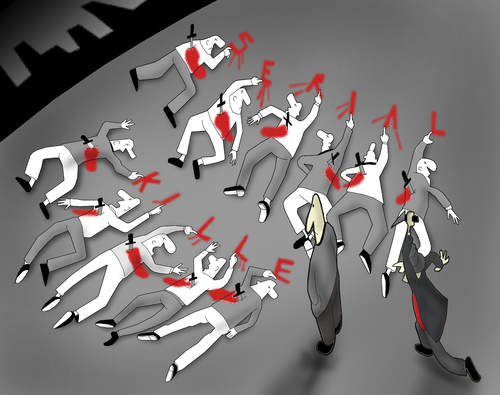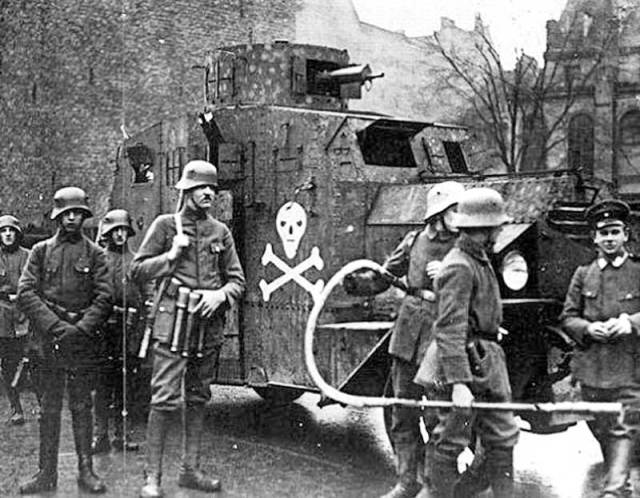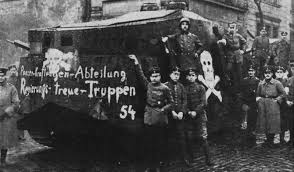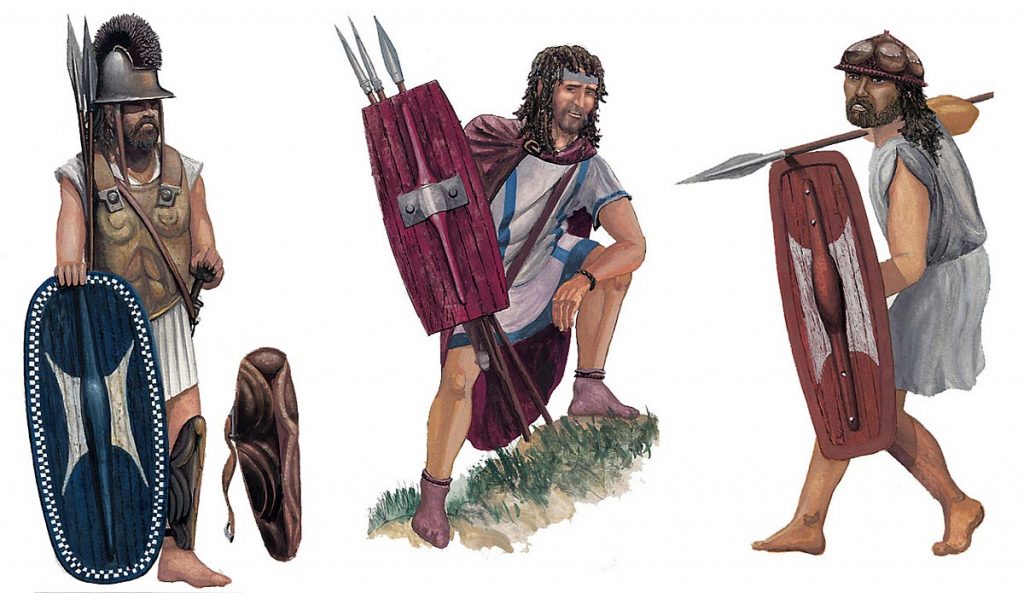
Some people, we are told, are the beneficiaries of unearned privilege. Their ancestors performed evil acts in order to gain power and wealth, then they passed that power and wealth to their descendants. As a result, those descendants are obliged to share their wealth with those whose ancestors were not evil. The reality, as this essay will explain, is that everyone on Earth is descended from someone evil.
The nature of life on this Earth is kill or be killed. At every single level of life, one must kill in order to continue. Life feeds on life, and the only alternative is starvation.
Even if a creature doesn’t eat meat, but only eats plants, they still have to kill for mating opportunities or for territory.
Mating opportunities don’t necessarily come easily – males fight to the death over fertile females in a great number of species. Even if a female goes willingly with a male, there are other males ready to kill him and take his place. Killing a male and raping his female is, as far as Nature is concerned, a perfectly legitimate mating strategy. All Nature cares about is that the female carries to term.
Even if a creature doesn’t try to reproduce, their body’s metabolic demands require that they eat, and this requires that they control territory. This territory will invariably be contested by other creatures who also seek food. Those other creatures are happy to kill their opponents if resisted. So control of territory requires a willingness to kill those others who would control it.
The nature of human history is little different. Humans might be different to animals, but the major behavioural differences between us and them didn’t arise until recently. Before then, the vast majority of us were as vicious, callous and opportunistic as any animal.
Men have always fought over breeding partners. The emotion of jealousy evolved to help motivate us to kill our rivals for them. At times in the human biological past, this rivalry was so intense that a small minority of men controlled a majority of the women. The others usually died in the attempt to get laid.
Men have also always fought over territory (or at least for the resources in those territories). This was an established fact well before the Age of Colonisation began. The first recorded war was some 4,700 years ago, and the warring has never stopped. Any king or ruler who calculated that they could conquer their neighbouring territory usually did. The need to spill blood did not deter them.
Ruthless conflict for ultimately biological causes has been an inescapable feature of human history from the beginning. In truth, even World War II – portrayed as the ultimate struggle between good and evil – boiled down to the control of territory and the resources that came with it. The first man ever to kill a member of the neighbouring tribe probably did so for lebensraum – nothing has ever changed.
World War II was a slaughter for resources, World War I was a slaughter for resources, the Napoleonic Wars were slaughters for resources, the Crusades were slaughters for resources, Julius Caesar slaughtered for resources, Alexander slaughtered for resources. All of these endeavours may have been framed as other things, but fundamentally they were about one’s tribe winning access to land and women.
Everyone who succeeded in this struggle was a killer. This they had to be by virtue of the fact that their aspirations were violently opposed.
The idea that someone can be meek and still thrive is a delusion brought about by the influence of slave cults such as Christianity. Throughout the entirety of human history, the meek were simply cast aside. Those casting them aside won the women, the land and the reproductive opportunities. All who exist today are descended from them.
Today, one can argue that it’s truly possible to be civilised. Kindness is outperforming aggression in an increasing number of work environments, as proven by the fact that women are doing better in them. But this is an extremely recent phenomenon.
The long peace that we have enjoyed since World War II does not change the fact that each and every single one of us, without exception, are descended from grievous criminals. Murderers, rapists, land thieves: those are our ancestors. Had that not been the case, they would not have survived. They would have been killed by other people’s ancestors.
Consequently, it’s pointless to try to make another person feel guilty for supposedly inherited privilege. No matter what class a person occupies, they are descended from those who killed to gain wealth. The best thing would be to widely acknowledge this, and then work towards finding an end to the suffering of all sentient beings.
*
If you enjoyed reading this essay, you can get a compilation of the Best VJMP Essays and Articles of 2019 from Amazon for Kindle or Amazon for CreateSpace (for international readers), or TradeMe (for Kiwis). A compilation of the Best VJMP Essays and Articles of 2018 and the Best VJMP Essays and Articles of 2017 are also available.
*
If you would like to support our work in other ways, please consider subscribing to our SubscribeStar fund. Even better, buy any one of our books!




